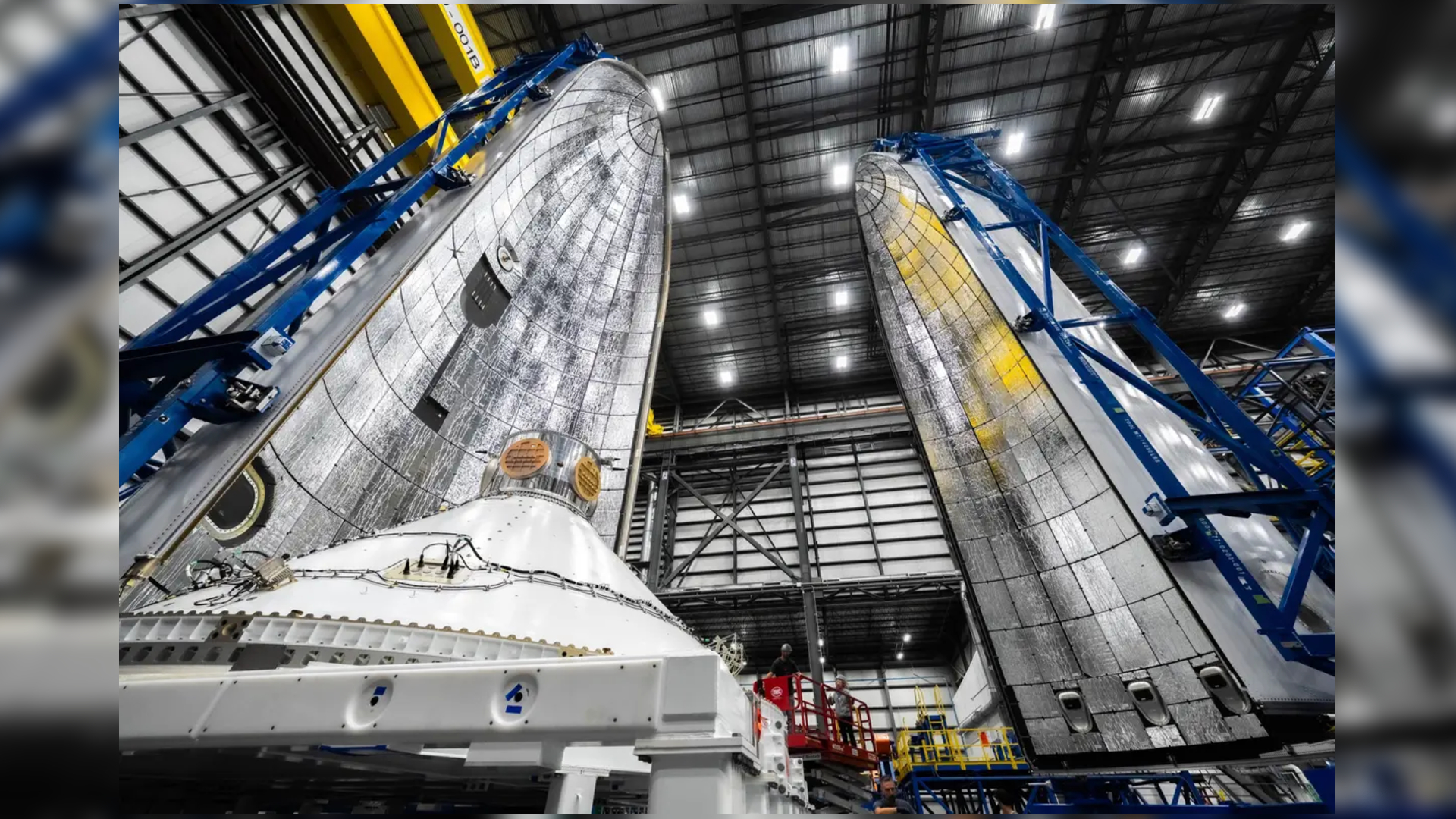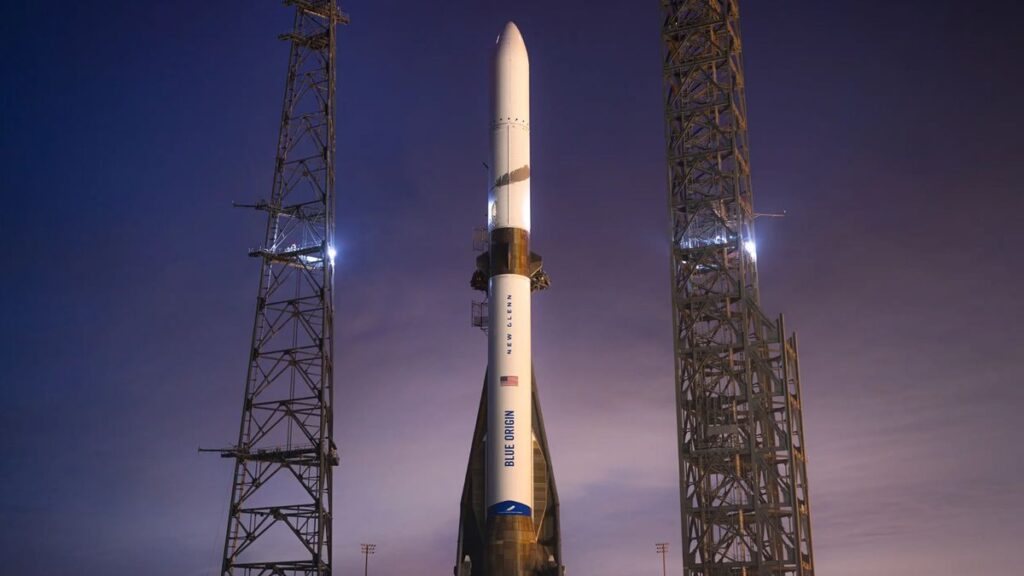We now have a launch date for the debut mission of Blue Origin’s powerful New Glenn rocket.
If all goes according to plan, New Glenn will lift off for the first time on Friday (Jan. 10) from Florida’s Cape Canaveral Space Force Station, during a three-hour window that opens at 1 a.m. EST (0600 GMT).
“This is our first flight and we’ve prepared rigorously for it,” Blue Origin‘s Jarrett Jones, SVP, New Glenn, said in a Monday evening (Jan. 6) statement that announced the target launch date. “But no amount of ground testing or mission simulations are a replacement for flying this rocket. It’s time to fly. No matter what happens, we’ll learn, refine and apply that knowledge to our next launch.”
Blue Origin, which was established in 2000 by Amazon founder Jeff Bezos, has been developing New Glenn for about a decade. The 320-foot-tall (98 meters) rocket sports a reusable first stage and can deliver about 50 tons (45 metric tons) of payload to low Earth orbit (LEO).
For comparison, SpaceX’s Falcon Heavy, which is also partially reusable, can haul about 70 tons (64 metric tons) to LEO.
Blue Origin calls the upcoming debut mission NG-1. New Glenn will carry a payload on the flight — a test version of the company’s “Blue Ring” spacecraft platform, which is designed to deliver customer payloads to a variety of orbits, among other tasks.
“The pathfinder will validate Blue Ring’s communications capabilities from orbit to ground,” Blue Origin wrote in a mission description last month.
“The mission will also test its in-space telemetry, tracking and command hardware, and ground-based radiometric tracking that will be used on the future Blue Ring production space vehicle,” the company added. “The pathfinder will remain onboard New Glenn’s second stage for the duration of an expected six-hour mission.”

NG-1 will also help get New Glenn certified to launch national security missions for the U.S. government, if all goes according to plan. Generally, new rockets must ace two flights to be so certified.
Blue Origin’s recovery plan for New Glenn first stages calls for bringing the boosters down on a ship at sea, as SpaceX routinely does with its Falcon 9 and Falcon Heavy rockets. And a booster landing will occur on NG-1, if all goes to plan.
“Our key objective is to reach orbit safely,” Blue Origin wrote in Monday’s statement. “We know landing the booster on our first try offshore in the Atlantic is ambitious — but we’re going for it.”


